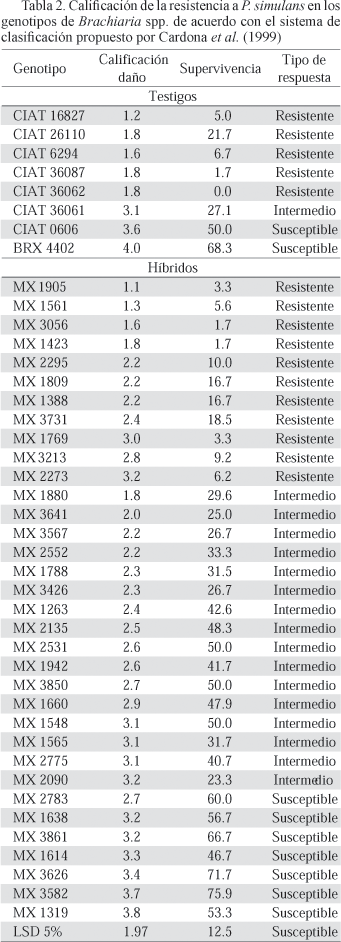Prosapia simulans (Walker) is an important spittlebug species that attacks forage grasses of the genus Brachiaria (Trin.) Griseb. from Mexico to Colombia. This, and several other species of spittlebugs, cause important economic losses to the livestock production industry. Development of resistant cultivars is regarded as the best method of control. In the present study we used taxonomic keys, dissection of male genitalia and RAPD-PCR patterns to reconfirm the identity of P. simulans specimens collected in Colombia and Mexico. We were able to reconfirm that P. simulans occurs as a pest of Brachiaria from Mexico to Colombia. We also studied the levels and mechanisms of resistance present in 34 Brachiaria hybrids developed by CIAT. Infestations were made with six eggs per plant. We used 10 replications (plants) per genotype in a completely randomized design. Seven hybrids were found to be susceptible, 16 showed intermediate resistance and 11 were resistant. Antibiosis was the mechanism of resistance expressed in resistant hybrids as well as in the resistant checks CIAT 6294 and CIAT 36062. Tolerance was absent. The genotypes BRX 4402 and CIAT 0606 were classified as highly susceptible.
Froghopper; antibiosis; breeding; tolerance; forage grass





